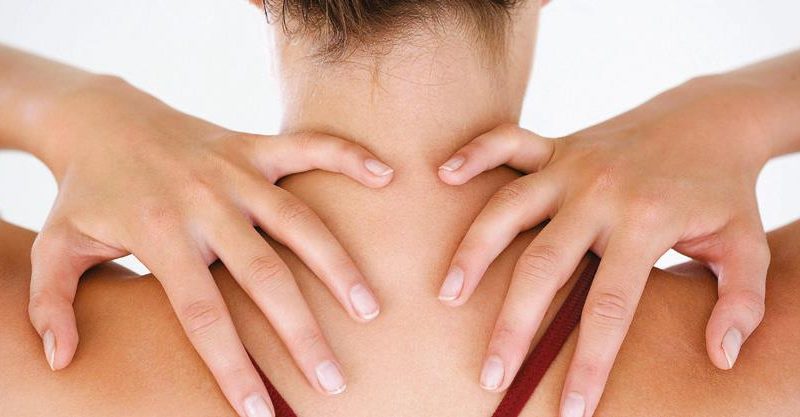Get rid of eczema, naturally
Eczema is associated with a blend of genes and environmental triggers. It may also be caused if the body’s immune system responds too aggressively to an allergen or irritant
By Vishal Duggal
The other day, you noticed a red, itchy patch on your neck and scratched the affected region continuously, only to leave it more irritated and inflamed. You got scared and rushed to a skin specialist to know if you are suffering from some serious skin problem. Many people like you have to grapple with similarly flared-up skin — this condition is commonly called eczema. In the U.S. alone, nearly 32 million Americans display symptoms of eczema and approximately 20% of children worldwide have some form of eczema.
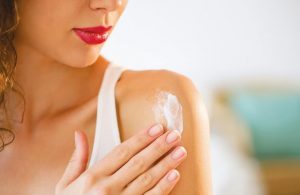 Did you know that eczema, also known as dermatitis, can be healed with proper precautions and timely treatment? You read that right – in order to heal eczema or at least make it less painful, you must first know the causes, symptoms, triggers, and natural treatment options for this skin ailment. What is eczema?
Did you know that eczema, also known as dermatitis, can be healed with proper precautions and timely treatment? You read that right – in order to heal eczema or at least make it less painful, you must first know the causes, symptoms, triggers, and natural treatment options for this skin ailment. What is eczema?
Eczema is a condition that causes the skin to become red, itchy, inflamed, dry, and infection-prone. Etymologically, eczema is derived from the Greek word ekzein that means ‘something thrown out by heat.’ The name is well-justified – when one suffers from eczema, the skin flares up or literally ‘boils’.

What causes eczema?
While researchers are still unable to share the exact cause of this skin disease, it’s thought to be associated with a blend of genes and environmental triggers. It may also be caused if the body’s immune system responds too aggressively to an allergen or irritant.
Research also suggests that some people suffering from eczema experience a transformation of the gene responsible for creating filaggrin -a protein that helps preserve a healthy and protective barrier on the topmost layer of our skin. So, if your body doesn’t have sufficient filaggrin, moisture on your skin can escape, allowing viruses, bacteria, and germs to enter your skin and cause eczema. While that is one of the explanations causing the problem, there can be other reasons for it.
Eczema can also be caused by blood disorders, delicate and sensitive nature of the skin, malfunction of the digestive tract, and hereditary reasons such as a history of allergies or asthma in families. In fact, allergies, immunity problems, and environmental factors such as exposure to toxic substances, high levels of pollution, and extreme climate are also factors in the occurrence of eczema. This disease is also attributable to eating disorders and poor hygiene.
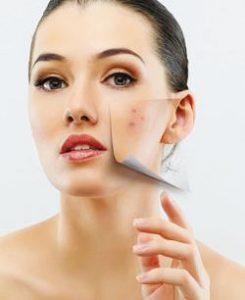
Eczema triggers
You might have, by now, identified potential triggers of eczema; but you should also be mindful that the itching and inflammation can take some time after exposure to flare up. Also, different people may have different triggers of eczema and it affects every individual differently. However, you might notice eczema symptoms at a specific time of the year or on different parts of your body.
Mentioned below are some of the known triggers of eczema:
- Dry Skin: If you have extremely dry skin, it can easily become rough, tight, scaly, or brittle, leading to eczema.
- Irritants: There are various everyday products or natural substances that may cause your skin to itch, burn, or become red and dry. You need to be cautious of the products that you apply on your body such as shampoo, hand, and dish soap; body wash, bubble bath, and cleaning products such as floor cleaners, laundry detergents, and disinfectants.
 Overuse or poor quality of these products may trigger eczema.
Overuse or poor quality of these products may trigger eczema.
Examples of other allergic reactions include excessive exposure to polyester or nylon synthetic fabrics. Some people also develop eczema from watch chains, shoes, sandals, necklaces, nail polish, shaving creams, and allergens found in other cosmetics. A lot may have been shared about the causes of eczema, but for most forms of eczema, researchers and doctors believe that combinations of genes and triggers are the most common reasons for skin irritation and inflammation.
- Stress: While there is no logical explanation for this, some researchers suggest that emotional stress can also trigger eczema. Eczema symptoms are known to deteriorate when the person feels stressed or depressed. Others may simply get upset over the fact that they have eczema, eventually making the problem worse.
Other risk factors include age, ethnicity, environment, medical conditions, genetic factors, immunity levels, climate, and psychological factors.
Best Ayurvedic suggestions to reduce Eczema
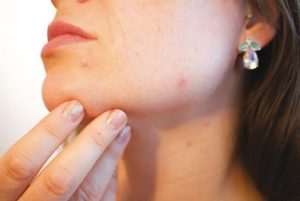 In Ayurveda, eczema is known as vicharchika and it occurs when the immune system becomes imbalanced. This condition is often associated with other allergic conditions such as asthma, hay fever, etc.
In Ayurveda, eczema is known as vicharchika and it occurs when the immune system becomes imbalanced. This condition is often associated with other allergic conditions such as asthma, hay fever, etc.
According to Ayurveda, eczema or vicharchika is caused by a faulty diet and lifestyle, due to which digestion is impaired and the pitta dosha is aggravated. Pitta (the fiery element or bile that governs all heat, metabolism, and transformation in the human mind and body) manifests in the skin and causes the accumulation of heating toxins known as Ama. These toxic substances are accumulated in body tissues, contaminating them over time to cause eczema.
Ayurveda advocates a balance of body, mind, and soul in sync with the patient’s unique body constitution.An individualized treatment plan is recommended in Ayurveda, comprising a proper diet and specialized herbal compounds. Eczema is healed by enhancing digestion, expelling toxins, and calming the pitta.
While the Ayurvedic treatment requires a highly disciplined approach to diets, massages, schedule of herbs, hygiene, and baths, the biggest challenge is following the entire Ayurvedic protocol while managing everyday activities. It also requires the utmost patience and persistence, especially in the beginning, but it certainly ensures positive results after a period of time.
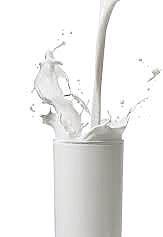 Ayurvedic remedies to treat eczema
Ayurvedic remedies to treat eczema
Milk
Use of milk on eczema affected skin is beneficial in reducing the problem of swelling, redness and itching. Use cold milk for good results. Leave a clean cotton cloth after dipping it in a bowl of cold milk for two minutes. Now place this cloth at the place of eczema-affected part for 30 minutes. You can use it as often as you want.
Honey
Honey is used for skin care and beauty since ancient times. Honey protects skin from dryness. Honey contains anti-inflammatory and anti-microbial properties. Apply honey to the eczema-affected area and leave it for 30 minutes and then wash it. Do this twice daily.
Neem
Neem’s anti-inflammatory properties are very effective in eczema symptoms. In addition, its anti-microbial properties work to eliminate germs that can further aggravate the eczema problem. To use it, you can paste neem leaves or use neem leaves in water or you can apply neem oil on the affected areas. You can use it every day.
Oatmeal
Chamomile is rich in anti-inflammatory and anti-microbial properties. To use it first you have to prepare a cup of chamomile tea. Now leave it to be cold and take a clean cotton cloth and leave it in chamomile tea for two minutes. Now apply this cloth for 20 minutes at eczema, and then wash it.
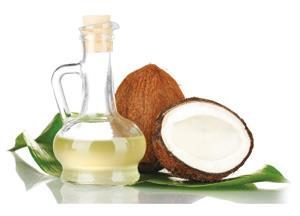 Coconut oil
Coconut oil
Add coconut oil to the place of eczema. Leave it for several hours before washing it. It is also used to treat skin infections and provide soft and smooth skin. It also reduces swelling and itching.
Aloe Vera
Aloe vera is a beneficial plant that is used in the treatment of many types of skin disorders. It has anti-inflammatory properties that help reduce pain and itching of the skin. For use in eczema, remove the aloe vera gel from fresh leaves of aloe vera and leave it on eczema for 5-6 hours. Do this every day.
Basil or Tulsi
Anti-inflammatory properties present in tulsi provide relief from inflammation, itching, and pain. With the anti-microbial properties present in it, your skin gets rid of infection and trouble. You can drink basil tea twice a day or let the tea cool down and immerse one clean cotton cloth for two minutes in it and place this cloth on eczema for 20 minutes, and then wash it.
Linseed
The seed of linseed is known as a herb. For the treatment of eczema, mix its paste in equal quantity of lemonade to the affected area. You can also use linseed oil daily to massage the affected areas.
Turmeric
Anti-inflammatory and anti-bacterial properties in turmeric are beneficial in reducing the problem of redness, swelling and itching. It is one of the herbs that control eczema symptoms. To use turmeric, take turmeric according to the use and prepare its paste. Now add cold milk or rose water in the paste and apply this paste to the affected areas, leave it for 20 minutes, and then clean it.
Use of Brahmi
Brahmi is a good herb for the treatment of eczema. Regular use of this herb helps you gets rid of skin swelling, redness and itching. Boil five Brahmi leaves in water, prepare the paste and leave it on the area affected for 20 minutes. Do this three times a week.
Sage
Sage herbs are used to reduce inflammation and redness in eczema problems. For this, boil the leaves of sage for 5 minutes in a glass of water, now you should consume this decoction. To get rid of the swelling of the skin, take it twice daily.
Don’t stress out if you have noticed any of the symptoms or risk factors for eczema. Though it can be challenging to manage eczema initially, don’t let fear bog you down. If you really want to get rid of the disease, adopt a more holistic and methodical approach to your treatment so that your skin can eventually balance itself

